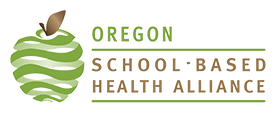16 July 2014 By Ketchura Antoine
All of the girls agreed that finding out that they were pregnant was a terrifying moment. Enveloped with fear of how their social and financial situations would change, they each wondered what they were going to do. They talked about the options for dealing with pregnancy: abortion, adoption and becoming a parent. The decision that they all made was to be a teen parent.
Letting their parents and rest of the world know that they were pregnant was a huge transition. Each one said that their parents weren’t mad at all, just extremely disappointed. Surprisingly, a few even said that their boyfriends were excited about their being pregnant. School also changed drastically and as she tried to hold back tears, one of the girls said that she was shunned and hated by friends and peers at school because she was pregnant. All of them felt very much alone.
Knowing that they would not be able to support their children adequately without a diploma, finishing high school became a priority. After their children were born they transferred from conventional high school to a program called House of Hope. House of Hope is an alternative education program for teen mothers that allow them to bring their babies to school AND care for them while in school.
Each teen mother emphasized the financial burden of raising a child. With the struggle of finding a well-paying job and inexpensive day care, raising a healthy baby is very difficult. Three of the girls were on either WIC (Women, Infants and Children) or TANF (Temporary Assistance for Needy Families). Both of these programs have multiple eligibility requirements, two being that to qualify for TANF you must be a US citizen and be over eighteen. This is a huge disadvantage for some women with children, who are forced to find resources without any assistance.
Healthcare is now more accessible than ever but young people still don’t really know how to take control of their health. As a Youth Action Council member at OSBHA and a youth advocate for equitable access to healthcare, I believe that it is important to give youth the support and access they need to make healthy decisions about their reproductive health. Promoting the use of School Based Health Centers to young parents is an excellent way to give them access to health care, but to also educate them about the importance of their own and children’s health. I myself was born to teen parents. We were on Medicaid for a bit and I remember having lots of strange experiences with healthcare and providers who weren’t accustomed to working with young people. SBHCs are an adolescent-centered model that reflect health care in a positive way and has the potential to be a life changing tool for young parents.
Parenting as a teen is one of the most challenging experiences, but the one thing that all of the girls seemed to be endlessly thankful for is the amount of support they receive from the people around them. Young parents want to raise happy, healthy kids and providing lots of resources for them to sufficiently care for their children is the best support that we can give.

